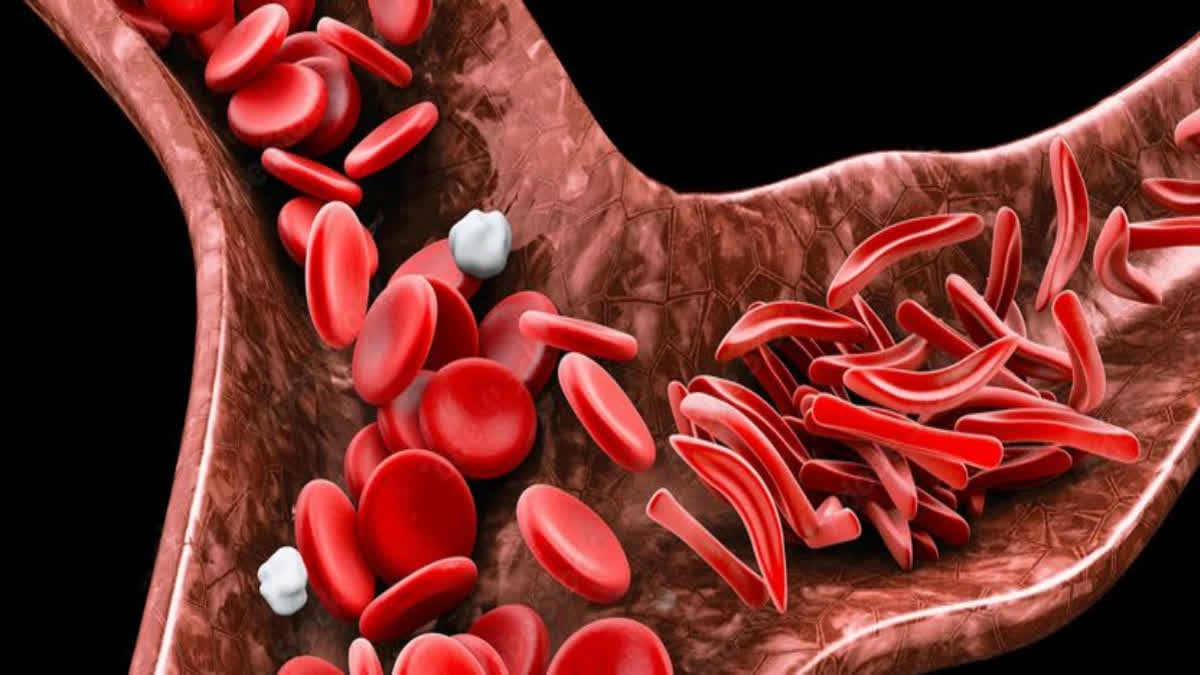New Delhi: Issuing a red flag for hospitalisation or referral to a higher centre for sickle cell disease, a standard treatment protocol prepared by the Indian Council of Medical Research (ICMR) on Monday said that people with significant respiratory symptoms (cough, shortness of breath, chest pain) or hypoxia need urgent attention for hospitalisation.
It further said that acute illness requiring immediate medical care, including emergencies, pain inadequately relieved by home measures, abdominal pain, distention, acute enlargement of spleen, any neurological signs or symptoms as well as significant coming and diarrhoea need immediate hospitalisation.
Sickle cell disease (SCD) is a hereditary blood ailment in which red blood cells break down and become misshapen. The cells die early, leaving a shortage of healthy red blood cells (sickle cell anaemia) and can block blood flow causing pain (sickle cell crisis). Sickle cell disease mainly occurs among the adivasi (tribal) communities in India. As per an estimate, 1 in 86 births among STs has SCD.
Suggesting that SCD affects haemoglobin (responsible for carrying oxygen in the blood) in red blood cells, which can result in morbidity and mortality, the ICMR suggested early detection and hospitalization of people having SCD. The ICMR study further said that long-term complications of SCD include end-organ damage, hepatopathy, chronic kidney disease, hypersplenism, avascular neurosis of the femur, foot ulcers etc.
Stating that SCD carriers are generally asymptomatic, the ICMR study has said that the goal of management is to improve the quality of life and life expectancy of the affected individuals. "Early and aggressive management of pain should be advocated, since pain may be indicative of microvascular organ damage. Pain management can be done using paracetamol, diclofenac or tramadol," the ICMR study said.
Suggesting that newborns are also affected by SCD, the ICMR study suggested for point of care (POC) test to initiate penicillin prophylaxis in baby and enrolling a vaccination programme. "If the mother is a sickle cell carrier, then testing of the father is mandatory. If the father test positive, counselling and pre-natal testing should be performed (at centres with necessary facilities) to prevent the risk of birth of an affected newborn," the ICMR study said.
Significantly, the Ministry of Tribal Affairs has already launched an SCD support centre to bridge the gap between patients and health care services in tribal areas.
Also read: Third phase trial for adult anti-TB vaccine, says ICMR



